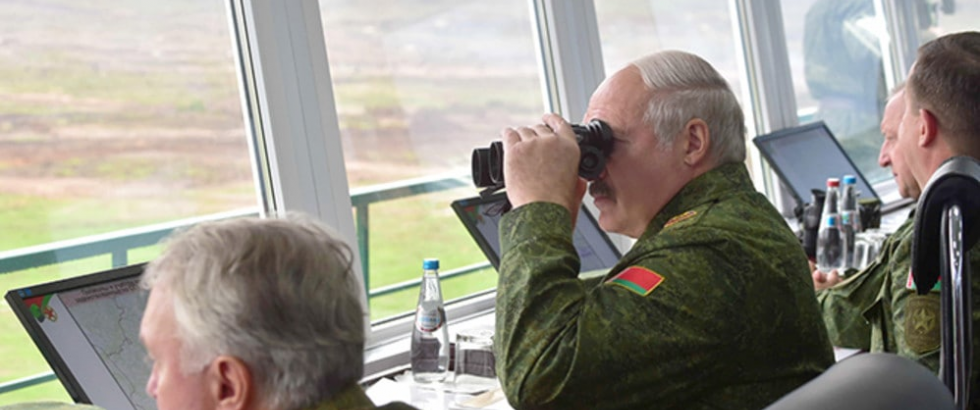Small Chessboard: Lieutenant Colonel’s Game
 The situation got worse
The situation got worse

The joint Russian-Belarusian “Allied Resolve 2022” exercises are underway, and Lukashenka is trying to use them in his own way. He threatens to cut off the supply of fuel and electricity to Ukraine and promises, if necessary, to recognize Crimea as Russian. Meanwhile, the debate about how independent Lukashenka is as a political figure on the regional chessboard is expanding.
While the “Allied Resolve 2022” maneuvers are underway, Lukashenka is trying to give them a strategic dimension. In particular, he is blackmailing Ukraine – he threatens to cut off the supply of fuel and electricity to the country in the event of an escalation of the Russian-Ukrainian conflict (thereby expanding the transit war with Lithuania to a regional scale).
In a symbolic aspect, this “geopolitical reversal” is fixed by the assurances of Lukashenka that, if necessary, he will recognize the sovereignty of Abkhazia and South Ossetia and the belonging of Crimea to Russia. In turn, the Kremlin’s voice, Dmitry Peskov, does not see an urgent need for this and believes that Belarus itself will make a decision on the recognition of these countries and the region when it “considers it expedient.”
On February 7, the day when Lukashenka gave a lengthy interview to the YouTube channel “Solovyov Live”, negotiations between the presidents of France and Russia Emmanuel Macron and Vladimir Putin were held in Moscow, during which the changes prescribed in the new draft Constitution of Belarus, as well as Lukashenka’s statements on the possibility of deploying nuclear weapons on the territory of the country, were discussed. At a press conference following the talks, Emmanuel Macron said that the President of the Russian Federation “reassured” him about the changes in the Constitution of the Republic of Belarus.
Experts are generally skeptical about the West’s ability to agree with the Kremlin on resolving the Belarusian crisis in an acceptable way for both sides. Given that the leaders of Western countries do not communicate with Lukashenka himself (with the exception of Angela Merkel’s call), a natural question arises about whether they see him as an independent political figure. Strictly speaking, is Lukashenka assessed today as an independent political figure in the Kremlin?
There are leaders of unrecognized states, as well as unrecognized leaders of states. There is an obvious difference between the first and the second, but in relation to Lukashenka it is no longer so obvious. In a year and a half, he has undergone a marked political evolution or, better said, devolution – from the head of state to someone like the Russian governor-general or, in the words of political scientist Ivan Preobrazhensky, “Putin’s new foot soldier.” In turn, “the army of Belarus is turning into Lukashenka’s PMC in the service and maintenance of Russia before our eyes. This is the price for the Kremlin’s carte blanche for the actions of the Belarusian ruler inside the country,” the expert concludes .
Lukashenka’s reminder of the unfulfilled promise of Russian President Putin to award him the rank of colonel in this context sounds quite (self-)ironic. Dmitry Peskov, in this regard, gave an explanation: Vladimir Putin has no right to assign ranks in the armed forces of another country. At the moment, Lukashenka, according to his own words, is in the rank of lieutenant colonel.
Could the Kremlin have expected such an outcome? In a relatively short time, Lukashenka outsourced several sovereign functions to Russia, including security, propaganda and transit issues, thereby radically weakening his own negotiating positions in bargaining with the Kremlin. He also did what Moscow never dreamed of – almost completely neutralizing the broad opposition, somehow associated with nationally-oriented values.
The latter circumstance, apparently, should be mitigated by the fact that Lukashenka, according to him, has information about Russian businessmen who financed the protests in Belarus, and will provide this data to the President of the Russian Federation.
Subscribe to our newsletter




Situation in Belarus
Constitutional referendum: main consequences


 Video
Video
How to count the political prisoners: are the new criteria needed?


 Video
Video
Paternalism In Decline, Belarusian Euroscepticism, And The Influence Of Russia


 Video
Video












